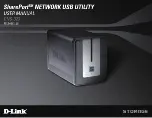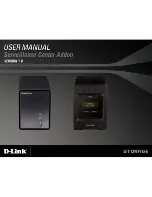
C
HEETAH
15K.7 SAS P
RODUCT
M
ANUAL
, R
EV
. F
28
c. Non-operating
The limits of non-operating vibration shall apply to all conditions of handling and transportation. This includes both
isolated drives and integrated drives.
The drive shall not incur physical damage or degraded performance as a result of continuous vibration not exceeding
5 – 22 Hz
0.25 G (0 to peak, linear, swept sine, 0.5 octive/min)
22 - 350 Hz
3 G (0 to peak, linear, swept sine, 0.5 octive/min)
350 - 500 Hz
1 G (0 to peak, linear, swept sine, 0.5 octive/min)
Vibration may be applied in the X, Y, or Z axis.
6.4.5
Acoustics
Sound power during idle mode shall be 3.4 bels typical when measured to ISO 7779 specification. Sound power while
operating shall be 3.8 bels typical when measured to ISO 7779 specification.
There will not be any discrete tones more than 10 dB above the masking noise on typical drives when measured according
to Seagate specification 30553-001. There will not be any tones more than 24 dB above the masking noise on any drive.
6.4.6
Air cleanliness
The drive is designed to operate in a typical office environment with minimal environmental control.
6.4.7
Corrosive environment
Seagate electronic drive components pass accelerated corrosion testing equivalent to 10 years exposure to light industrial
environments containing sulfurous gases, chlorine and nitric oxide, classes G and H per ASTM B845. However, this
accelerated testing cannot duplicate every potential application environment.
Users should use caution exposing any electronic components to uncontrolled chemical pollutants and corrosive chemicals
as electronic drive component reliability can be affected by the installation
environment. The silver, copper, nickel and gold
films used in Seagate products are especially sensitive to the presence of sulfide, chloride, and nitrate contaminants. Sulfur
is found to be the most damaging. In addition, electronic components should never be exposed to condensing water on the
surface of the printed circuit board assembly (PCBA) or exposed to an ambient relative humidity greater than 95%. Materials
used in cabinet fabrication, such as vulcanized rubber, that can outgas corrosive compounds should be minimized or
eliminated. The useful life of any electronic equipment may be extended by replacing materials near circuitry with sulfide-free
alternatives.
6.4.8
RoHS compliance statement
The European Union Restriction of Hazardous Substances (RoHS) Directive restricts the presence of chemical substances,
including Lead (Pb), in electronic products effective July 2006.
A number of parts and materials in Seagate products are procured from external suppliers. We rely on the representations of
our suppliers regarding the presence of RoHS substances in these parts and materials. Our supplier contracts require
compliance with our chemical substance restrictions, and our suppliers document their compliance with our requirements by
providing material content declarations for all parts and materials for the disk drives documented in this publication. Current
supplier declarations include disclosure of the inclusion of any RoHS-regulated substance in such parts or materials.
Seagate also has internal systems in place to ensure ongoing compliance with the RoHS Directive and all laws and
regulations which restrict chemical content in electronic products. These systems include standard operating procedures that
ensure that restricted substances are not utilized in our manufacturing operations, laboratory analytical validation testing,
and an internal auditing process to ensure that we comply with all standard operating procedures.
















































